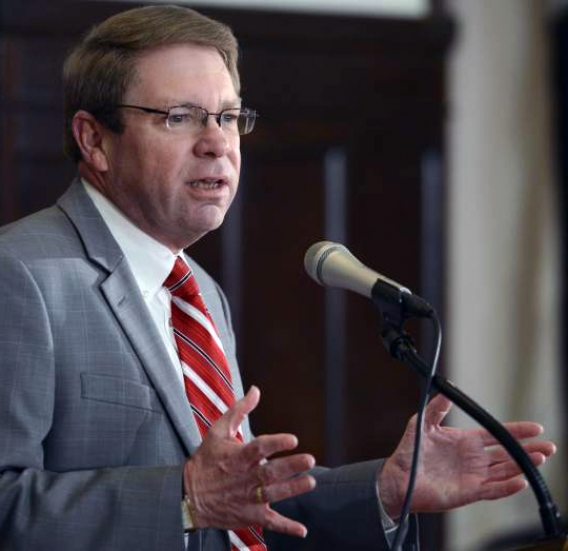Positioning the state
Sorting out Louisiana’s budget mess

Now that the governor’s state budget proposal has been presented and lawmakers are beginning to scrutinize it, there’s only one thing you can say about it. It’s a mess.
On the surface, some things from the administration’s recent budget presentation made it look to the casual observer that it was not as bad as expected. The cut to higher education, while huge at more than $200 million, was not as much as some were predicting. And elementary and secondary education actually received an “increase” in funding. Or so it all seemed. The truth is a significant part of this year’s executive budget is balanced with money we don’t have and paints a picture that seems misleading at best.
Take higher education. While the budget presentation suggested the cut to colleges and universities was about $140 million, the more practical number is actually more than $200 million. But that’s not all. If you dig a little deeper, you realize that some $300 million that has been budgeted to higher education is money we don’t have. It’s part of more than half-a-billion dollars that’s in the budget, but dependent on the uncertainty of legislative action, basically reducing tax credits.
And though legislators may very well do that, the problem is that the lion’s share of that half billion dollars actually comes from a single tax credit the state gives to businesses to offset an unorthodox local tax that everyone agrees hurts our competitiveness. While that whole arrangement cries for some type of reform, this idea doesn’t offer any and is unlikely to pass in this form anyway. So count that revenue as iffy.
As far as the K-12 education budget, the administration claims a $30 million net increase in education spending, but that’s deceiving, too. Among other things, it takes into account the transfer of an existing $80 million child care program from another agency to the Department of Education. The transfer makes sense, but it doesn’t count as an increase in education funding.
Meanwhile, the department’s budget for testing contracts has been slashed by almost 50-percent. Keep in mind there that both state and federal law require the department to administer annual accountability tests and failure to do so could jeopardize some $800 million in federal aid that we currently receive.
The point is, all is not what it might appear, and yes, this budget crisis is for real. The solution is getting harder and harder to figure out. Common sense tells you to balance the budget there are only three things you can do: cut spending, raise revenue or undertake a combination of both. The latter appears the most likely, but even there you run into complications.
One is that this is an election year, and no one wants to raise taxes while running for office. (Though, the flip side of that is no one really wants to slash higher education or jeopardize $800 million in federal support for education either.) The other complicating factor is the governor’s anti-tax pledge, which he has vowed to keep.
And while it is true that he has put a few revenue options on the table like eliminating some tax credits and raising taxes on tobacco and alcohol, he’s also said in the end it has to be “revenue neutral” for the state. That, in turn, has led to convoluted proposals that are manufactured to fit a certain definition of not raising taxes but seem more like something out of the theater of the absurd: raising fees in higher education, covering that new cost to students through a tax credit and then paying for the tax credit with a cigarette tax. That doesn’t look like the picture of simplicity.
For the longer term, though, there may be some answers. A group of Louisiana university economists has completed a lengthy study of Louisiana’s tax structure and they recently presented their findings to legislators. And while any discussion of tax reform is bound to give some groups heartburn, their recommendations are both thoughtful and reasonable and should set the stage for a much-needed debate in our state about our fiscal future.
The discussion during this year’s session won’t be about the future; it will be about avoiding a serious fiscal cliff as we teeter back and forth on the brink of it. Whatever solutions the Legislature comes up with won’t be pretty, they’ll probably be temporary, and they won’t right the ship. But hopefully they will buy us just enough time to allow a new governor and Legislature the opportunity to enact the structural changes in our spending and revenues that will position us for a more sustainable future. That’s something we should have started doing when we first got into this mess.
Barry Erwin is the president and CEO of the Council For A Better Louisiana.
